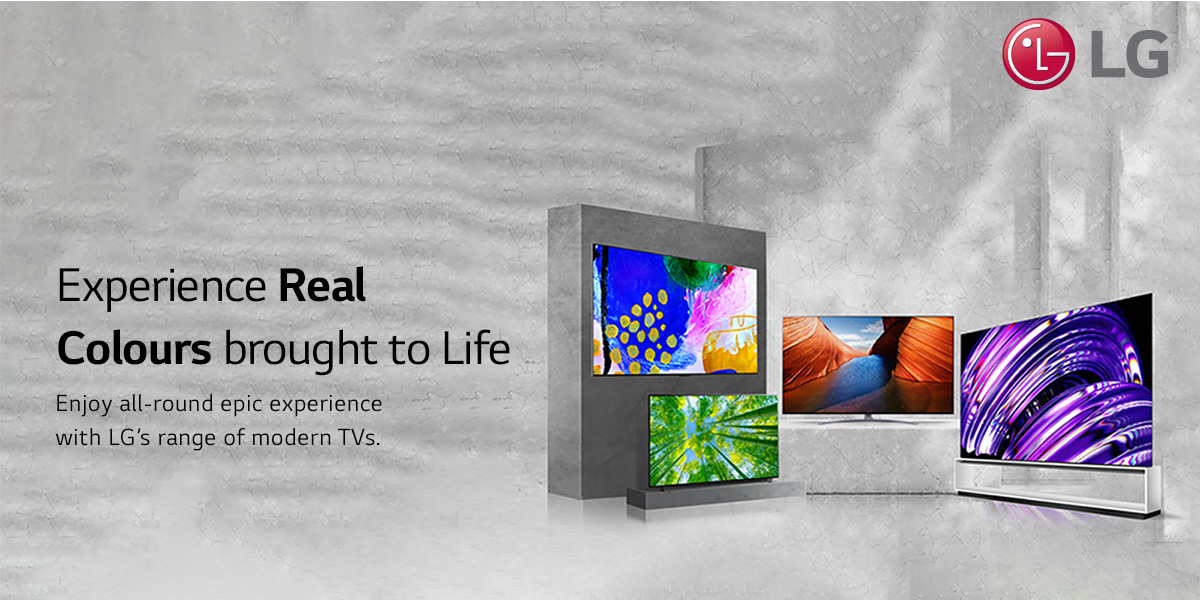How LG TVs Turning Living Rooms Into Digital Art Gallery

Is the world ready to move beyond movie, standard, and vivid? LG already think so. The company’s Television let you create a personalized picture mode. Over the past several years, technology has been transforming lives and causing disruptions in how we use products. From cars, toys, sound systems to even gaming, technology has changed how we understand them. Home Entertainment is the latest area currently witnessing huge disruptions thanks to Smart TV. But for us in Nigeria, do we need the current Smart TVs now? Do you own the best smart TVs? Which is the best?
Why you need LG Smart TV
A Smart TV is basically, internet enabled television set. In other words, a Smart TV is a digital television that comes with access to the internet and storage space in addition to regular TV capabilities. LG TVs come with its own operating system – WebOS and can stream several contents and also install apps. It also allows users project from their smartphones or use voice control.
LG possesses varieties of Smart TVs starting with the UHD TV, NanoCell TV and the much-advanced OLED TV. LG Smart TV brings a whole new experience to your TV viewing experience. You get to enjoy contents you already experience on your smartphone, but with a much larger display and functionality.
Gallery Mode on LG TV, is an idle setting that aims to transform your screen from a dead, black rectangle when you aren’t watching it. Rather than the usual screensaver that you might see on existing TVs or streaming boxes when they’re inactive, it aims to make your TV practically disappear into its surroundings. Here’s everything you need to know about this feature. A big reason to add this LG TV to your living room is for Gallery Mode’s ability to make it disappear into the room and fit in like a part of the décor.
Ultimately, you’ll always struggle to beat the vibrancy and black performance of an OLED, especially from LG. The GX Gallery Series TV is one of LG’s absolute best performances. If you’re buying a TV at any point in history, you should consider exactly what you want to use it for. Not just on the day you’re buying it, but in the following months and years. A television should at least stick around for five to seven years, and in that time a lot could happen.
Ask yourself: are you thinking of getting a new gaming console? Will you want to expand your speakers for surround sound? Do you want to connect devices in a specific way that you’ll buy at a later date? You will need to answer all of these questions before you pick your TV so you can get the absolute best value for money.
The GX-series of LG OLED TVs is just about as future-proofed as you could hope for these days. The Gallery Series TV in question, for example, packs in a heap of gaming gear that make your Xbox Series X and PlayStation 5 experience as close to perfect as you could hope for. The Gallery Series TVs support Variable Refresh Rate, Auto Low Latency Mode and feature HDMI 2.1 ports. You’ve even got NVIDIA G-Sync tech built-in for PC gamers to take advantage of. Likewise, the C-Series is another perfect TV with these features, the LG C1 and C2 OLED TV.
This year, LG OLED celebrates its 10th anniversary – a monumental achievement that owes much to LG’s tenacity and innovative spirit. It was in 2013 that the company first introduced OLED TV to the world, overcoming a variety of technical difficulties and much skepticism from industry experts. When others turned to other technologies, LG saw an opportunity to usher in a new era for the television by investing heavily in this unchartered territory, and the rest is history. LG OLED has evolved into a mainstay of the premium TV market in just 10 years through its unmatched contrast which enables perfect blacks and true-to-life colors, as well as its unprecedented flexibility and thinness.
During its decade at the top, LG OLED has time and again been recognized as the best. The plaudits started even before the official release of the company’s first OLED TV model, as evidenced by the 11 consecutive years that LG OLED has been honored at the annually-held CES Innovation Award and the numerous accolades it has received from major publications, including several “Best TV of the Year” titles and countless claims of being “the best TV I’ve ever reviewed,” “a true Marvel” and “the king of TVs.” LG’s OLED TVs account for 60 percent of all OLED TVs sold worldwide, and exceeded 15 million units in terms of cumulative shipments at the end of last year.
After successfully mass producing its (and the world’s) first 55-inch Full HD OLED TV in 2013, LG has continued to push boundaries with its OLED-optimized hardware and software innovations. Among the company’s many groundbreaking OLED products are the paper-thin Wallpaper TV from 2017, and 2020’s unprecedented Rollable TV, which features a display that can roll down and disappear into the TV’s base. This year, the company introduced the world’s largest OLED TV – the new 97-inch wireless model – and, back in 2019, it was the first to release an 88-inch 8K OLED TV.
The premium TV market leader for the past 10 years, LG has improved public awareness of OLED through continuous and progressive marketing activities centering on the uniqueness of OLED and the development and refinement of its self-lit display technology. LG has been carrying out engaging campaigns focusing on a range of different arenas – from movies and sports to gaming and the world of art – and highlighting elements that are unique to OLED, such as self-emissive pixels, perfect blacks, vivid colors, slim design, and diverse form factors.






